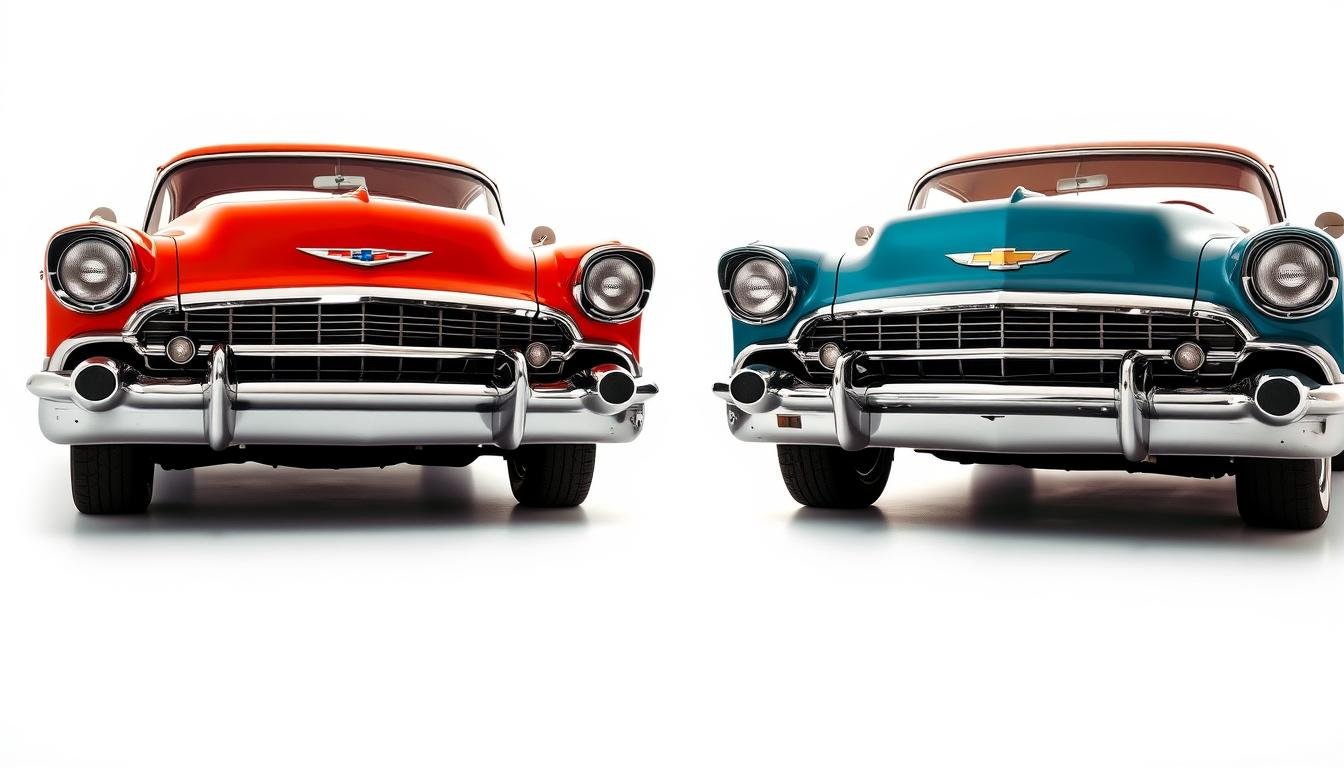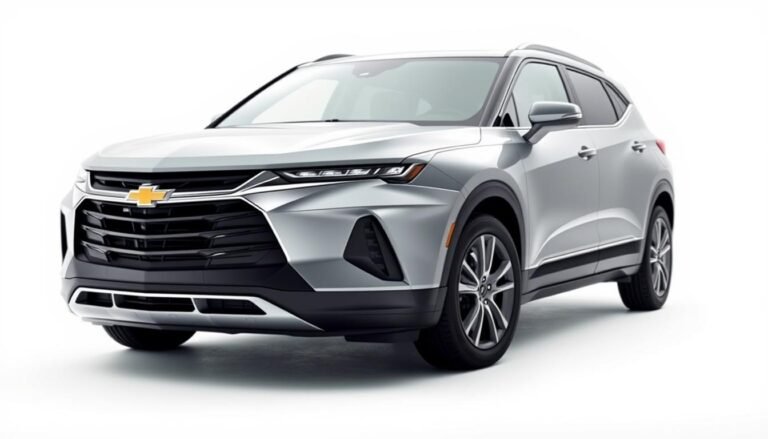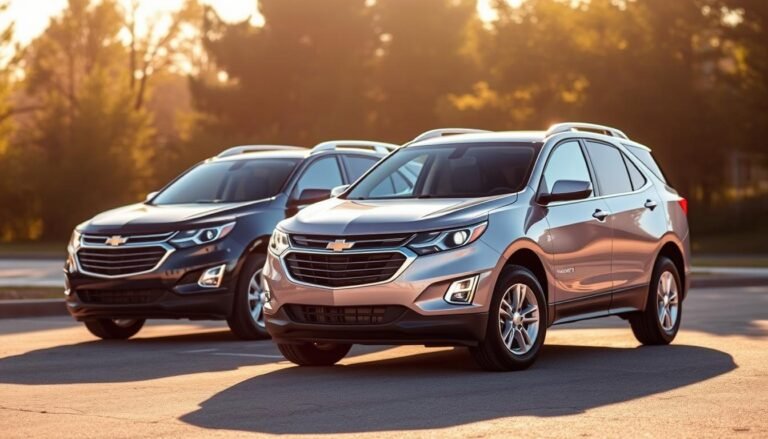Is Chevy and Chevrolet The Same? Unraveling The Truth
Are Chevy and Chevrolet the same thing? Yes, they are the same car brand. “Chevy” is just a popular nickname for Chevrolet. This name is a big part of American car culture.
Sometimes, though, it can confuse people. In this article, you’ll get to know the Chevy vs Chevrolet difference.
We’ll explore their history, how they’re branded, and why both names are loved by many. We’re going to clear up some mix-ups about these names.
We’ll look at how Chevrolet started, its brand journey, and how people see it today. Plus, we’ll talk about Chevy’s big impact on American culture. You’ll learn a lot about this famous car name.
What is The Origin of The Terms Chevy and Chevrolet?
“Chevy” is a laid-back nickname for “Chevrolet.” This nickname came to be not long after Louis Chevrolet and William C. Durant started the company in 1911.
Chevrolets became so popular fast, making “Chevy” a common word. Discovering how these names began helps us see the deep bond between the brand and its fans.
Nicknames in branding show how folks feel about products. “Chevy” made the brand feel closer and simpler to people.
It makes both fans and everyday drivers feel like they’re part of a community. Looking into Chevy and Chevrolet shows the brand’s impact on culture.
Wondering if Chevy and Chevrolet are the same leads to a closer look at their influence.
An explanation helps understand that both names mean the same famous car brand but they touch people’s hearts differently.
History of Chevrolet as A Brand
Chevrolet became one of the most famous car brands starting in 1911. Louis Chevrolet and William C. Durant wanted to make great cars for everyone.
Over years, the brand brought new designs and tech, gaining a strong spot in the car world. Iconic cars like the Corvette and Camaro have come from Chevrolet.
These cars showed off their speed and beauty, making history for the brand. Chevrolet has made everything from cheap cars to tough trucks.
This let them reach different kinds of drivers. Talking about Chevy vs Chevrolet shows how people see the brand.
“Chevy” is a nickname many people use, while “Chevrolet” is the formal brand name. This difference helps us understand Chevy’s brand image better.
The Chevy vs Chevrolet debate also brings up the brand’s amazing history. Chevrolet stands for tradition and new ideas, winning the hearts of car fans for generations.
The Chevy vs Chevrolet Difference Explained
People often get mixed up between “Chevy” and “Chevrolet.” The chevy vs chevrolet comparison shows a clear difference.
“Chevrolet” is the brand’s official name, used in marketing and legal stuff. It brings a classic and formal feel, showing the brand’s long history in cars.
“Chevy,” on the other hand, is a friendly nickname. Fans and car owners love using it. It makes the brand feel close and personal.
In ads, “Chevy” speaks to trust, community, and feeling at home. This nickname is everywhere, working to make customers loyal to the brand.
The way these names are used changes how people see the brand. Some might like the traditional “Chevrolet,” while others prefer “Chevy’s” cozy feel.
This chevy and chevrolet similar naming matters a lot in connecting with the brand.
The Evolution of The Chevrolet Logo Through The Years
The Chevrolet logo, known as the “bowtie,” made its debut in 1913. It has changed a lot since then, showing shifts in car design trends.
The early versions were bold and strong, making a clear mark for Chevrolet. Later versions added gold and chrome, showing Chevy’s drive for fresh and stylish designs.
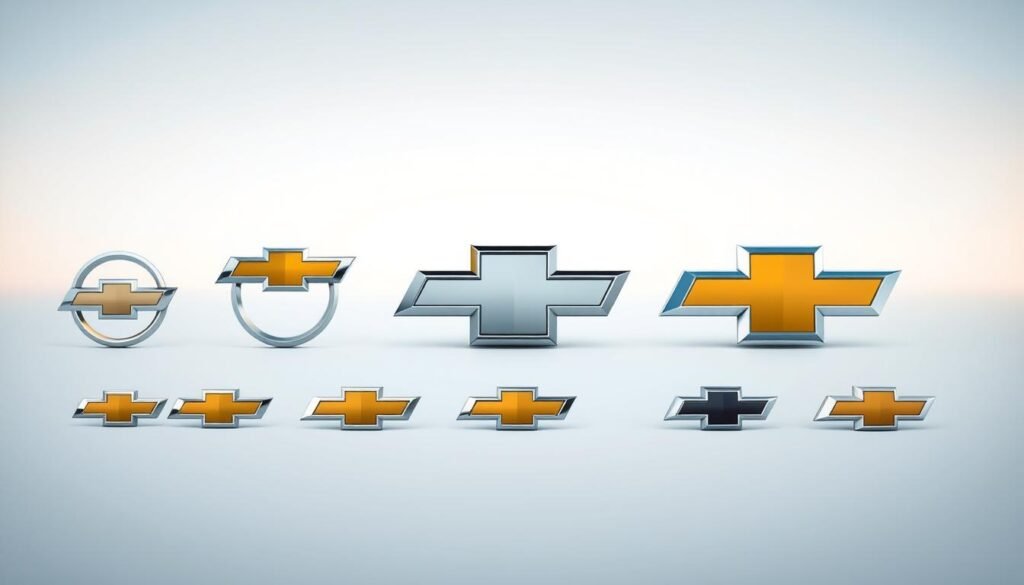
Each version of the logo tells a bit of Chevrolet’s story. For example, the bowtie designs in the mid-20th century were full of hope and a modern vibe.
But the newer designs are all about sleek and modern looks, while keeping the classic parts.
These changes help us see the chevy vs chevrolet difference more clearly, showing what Chevrolet is all about. The Chevrolet logo stands as a symbol of quality and creativity in cars.
It attracts car fans and everyday drivers alike, highlighting the importance of knowing the chevy and chevrolet story.
This logo stands for the cars Chevrolet makes and the spirit of the brand over the years.
Is Chevy and Chevrolet The Same? Unpacking The Terminology
Asking “is chevy and chevrolet the same” starts a deep talk about brand identity. People often use “Chevy” and “Chevrolet” interchangeably without knowing the subtle differences each holds.
“Chevy” sounds more laid-back and familiar, while “Chevrolet” is more formal. This mix-up fuels the chevy vs chevrolet debate.
Chevrolet’s marketing strategies aim to reach a broad audience. “Chevy” feels welcoming and friendly, targeting the everyday driver.
Meanwhile, “Chevrolet” speaks to heritage and professionalism, attracting enthusiasts and collectors.
A study showed both terms boost brand loyalty, making customers feel closer to their cars.
Delving into “Chevy” versus “Chevrolet” offers insights into their advertising. It shows how Chevrolet communicates its heritage with different names.
The Relationship Between Chevy and General Motors
General Motors (GM) started in 1908 and is the parent of Chevrolet. This link is key to how the car industry works today.
Chevy is a nickname for Chevrolet, a leading brand of GM known for its wide vehicle range.
Knowing the difference between Chevy and Chevrolet shows how they work together under GM. Chevrolet makes different kinds of vehicles, like trucks and sedans.
They reach a big market. GM uses Chevrolet’s innovation and appeal to target various customers.
They share resources and marketing to make better cars and operate smoothly. The teamwork between GM and Chevrolet shows GM’s smart planning.
This teamwork boosts Chevrolet’s image. It also influences buyers on choosing Chevy or Chevrolet.
The relationship impacts how customers see the brand and GM’s overall branding strategy.
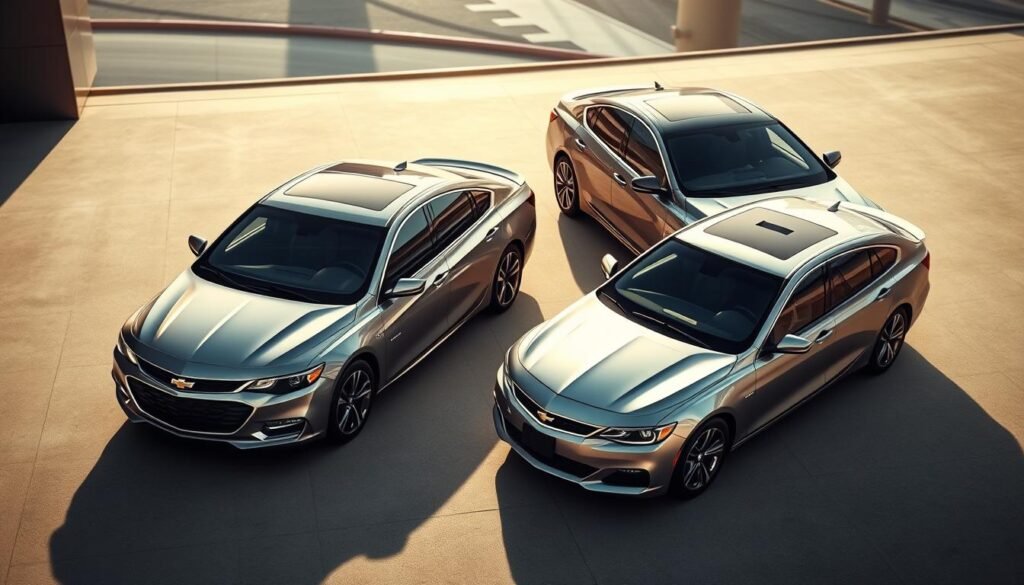
Chevy vs Chevrolet: A Comparison of Branding
In the world of cars, comparing chevy vs chevrolet shows two different ways a brand reaches people. Chevrolet is the official name, showing its long history and trust.
Chevy, on the other hand, feels more friendly and easy to get, drawing in people who want a car they can rely on.
Looking at how Chevrolet markets itself offers clues on its strategy. It uses both names in ads, speaking to a wide range of buyers.
High-end cars highlight the Chevrolet name, suggesting luxury and class. Cheaper models use the Chevy name, making them seem more within reach.
The way Chevy and Chevrolet brand themselves speaks volumes about what customers think.
Mention Chevy, and many imagine a car that’s both friendly and reliable. Say Chevrolet, and it brings up images of tradition and history.
This clever branding allows chevy and chevrolet to keep a unique image, yet stay united under one big brand identity.
| Brand Name | Target Audience | Marketing Focus |
|---|---|---|
| Chevrolet | Premium buyers | Quality and heritage |
| Chevy | Everyday consumers | Affordability and reliability |
Public Perceptions: Chevy vs Chevrolet Debate
People often talk about whether to say “Chevy” or “Chevrolet.” This discussion helps us understand what customers think.
It shows why they like one brand over another. Focus groups have found that “Chevy” brings warm feelings and memories.
People remember cars like the Camaro or Corvette fondly. “Chevrolet,” however, makes people think of the brand’s long history.
This difference creates a split in the Chevy vs Chevrolet talk. It’s more about what each name means to someone than the facts.
Age plays a big role in how people view these terms. Older customers prefer “Chevrolet” for its rich history.
Younger folks like “Chevy” because it sounds cool and modern. Even though people use both names, the feelings behind them are not the same.
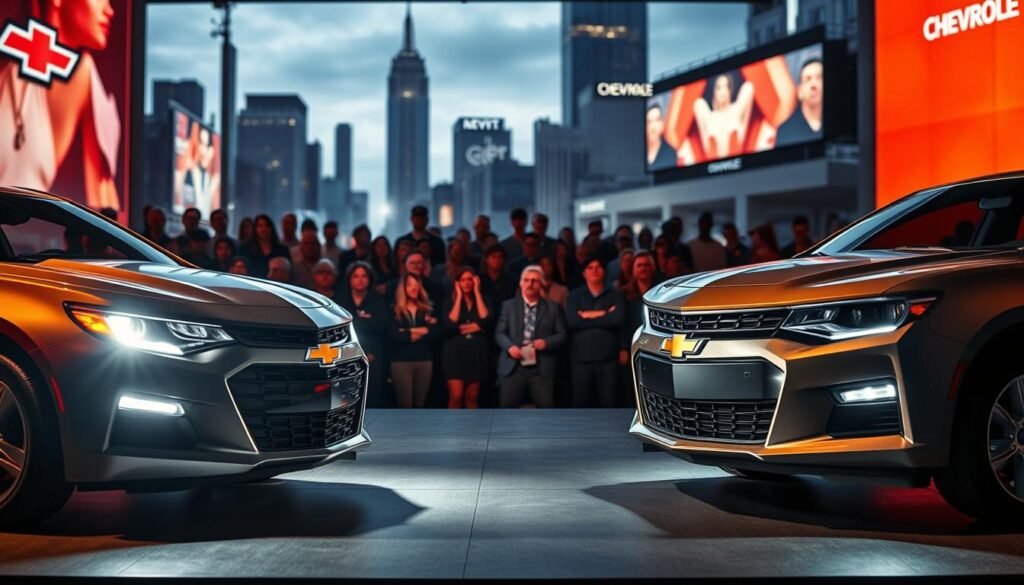
The way customers feel about Chevy or Chevrolet affects their loyalty. These feelings are important for car makers and advertisers to understand. It helps them see what people love about their cars.
Chevy and Chevrolet: Similarities and Differences
The words “Chevy” and “Chevrolet” are often used together in talks. Yet, they highlight different aspects of the brand.
Knowing these differences helps you understand and talk about the brand better. People see “Chevy” as a friendly, short name for Chevrolet.
It’s a name that sounds close and personal. This nickname suggests a deep bond with the brand, liked by fans and regular drivers.
It captures the spirit of friendship that comes with their cars. On the other hand, “Chevrolet” sounds more formal and high-end.
It’s usually used in official situations, like ads and business talks. Using the full name shows respect for the brand’s long history and status.
Thinking about how and when to use these names can change how you connect with car lovers.
You might say “Chevy” in laid-back chats and “Chevrolet” in serious talks. Realizing chevy and chevrolet similar helps you better enjoy what the brand stands for.
Interchangeable Use of Chevy and Chevrolet
People often use ‘Chevy’ and ‘Chevrolet’ like they mean the same thing. This happens in chats and ads.
Some fans prefer ‘Chevrolet’ for official stuff, but ‘Chevy’ is more common. Knowing how Chevy and Chevrolet can be used shows how words shape a brand.
Different places might like one name more, showing how culture and branding work together.
It’s interesting to see how branding changes to fit what people like. In ads, ‘Chevy’ is everywhere because it feels easy and friendly.
‘Chevrolet’ brings a classy vibe, keeping tradition alive. These names pop up in many places, each meaning something special to people.
| Term | Usage Context | Emotional Appeal |
|---|---|---|
| Chevy | Casual, everyday conversation | Approachable, friendly |
| Chevrolet | Formal, official communication | Tradition, classic appeal |
These two names show what people prefer and how important the setting is in branding.
Seeing the difference helps you understand the conversations about this famous American brand.
Marketing Strategies: Chevy or Chevrolet Preferred?
Chevrolet uses unique marketing tactics with “Chevy” and “Chevrolet.” Each name connects with people in different ways and affects ads.
The choice of “Chevy or Chevrolet” is about more than words. It’s about the feelings and thoughts that can influence what people buy.
Ads often use “Chevrolet” to highlight the brand’s long history and dependability. “Chevy,” on the other hand, feels friendlier and reaches a wider group.
To know which name works better, brands look at data like how much people interact and their loyalty.
How people react is crucial in the Chevy versus Chevrolet discussion. Younger folks tend to like “Chevy” because it’s more laid-back and easy to relate to.
Older buyers might lean towards “Chevrolet” for its more formal vibe. This shows Chevrolet can appeal to various people, which opens up different ways to market.
- Who you’re trying to reach changes whether you use “Chevy” or “Chevrolet.”
- The way you advertise can shape how people see the brand.
- How people feel plays a big part in successful ads.
- Looking at real-life examples shows how both names can work well.
To wrap up, choosing “Chevy” or “Chevrolet” for ads is a deep tactic. It’s about making a strong connection and showing the brand’s power.
This smart approach changes how people act, showing why it’s key to get the branding right.
The Cultural Impact of The Chevy Brand in America
The Chevrolet brand has become a big part of American culture. It stands for hard work, reliability, and new ideas.
The brand brings a feeling of nostalgia and pride, making it loved in many homes. To really get the cultural impact of Chevy, we look at how these vehicles are shown in art and media.
Chevy shows up in movies, music, and books, making it a key part of America’s identity. Movies with classic Chevy cars often talk about freedom, adventure, and the joy of the open road.
Many songs praise the feeling of driving a Chevy. This shows how deeply Chevy is rooted in our culture, making it stand out from other car brands.
When people talk about Chevy versus Chevrolet, they touch on a bigger cultural story. Chevrolet is the formal brand name, but Chevy feels more casual and friendly.
This difference reflects how the brand has grown. It stays close to the hearts of Americans while also embracing new ideas.
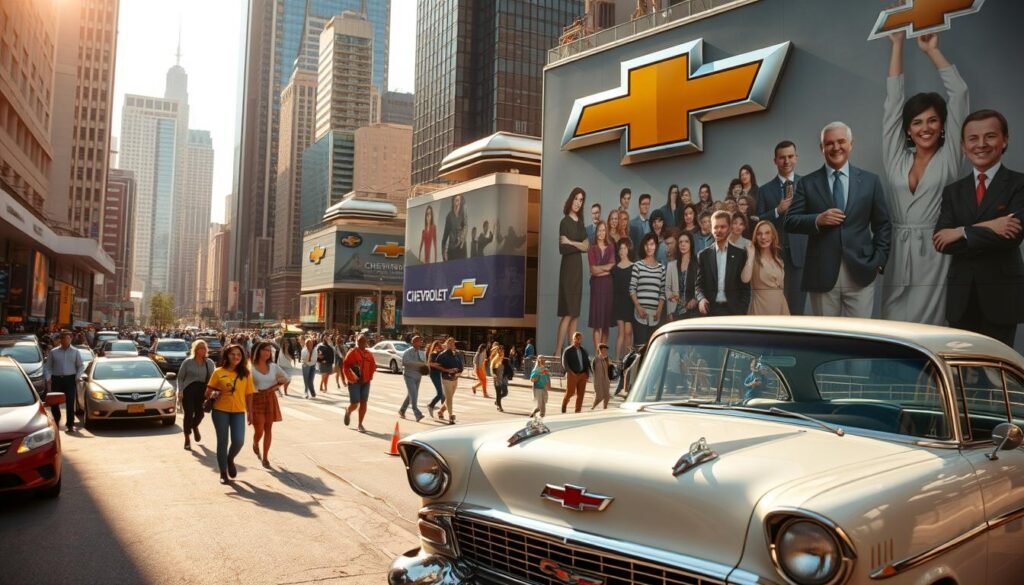
Chevy’s story shows its influence on and from American society over the years. These cars are more than just ways to get around.
They are symbols of experiences, dreams, and memories. To understand this means seeing the deep connections people have with their Chevy cars. It goes beyond just being a vehicle.
Conclusion
After looking into Chevy and Chevrolet, we see they show different sides of a famous brand.
Chevy is a nickname many people use, while Chevrolet is the brand’s official name. These names show how words and branding affect how we see and feel about our cars.
Thinking about Chevy and Chevrolet helps us value Chevrolet’s history and heritage more. Knowing the differences and similarities makes us smarter.
It also makes loving a Chevrolet even more special. In short, Chevy versus Chevrolet shows how the brand fits into car culture.
It shows how both names live together in the car world. This knowledge helps you connect better with Chevrolet. It lets you see beyond the names to the brand’s rich history.
FAQs
Is Chevy and Chevrolet the same?
Yes, “Chevy” is an informal nickname for “Chevrolet.” Both names point to the same car brand. Chevrolet is the formal name used in ads and legal matters.
What is the difference between Chevy and Chevrolet?
The main difference is how they’re used. “Chevrolet” sounds more official and is about the brand itself. “Chevy” feels more casual and friendly.
Can I use Chevy and Chevrolet interchangeably?
Generally, yes, but think about the situation. Use “Chevy” in a casual talk. Choose “Chevrolet” for more formal settings.
Which term is preferred in marketing?
In marketing, each term has its place. “Chevy” helps build a bond with people. “Chevrolet” shows the brand’s professionalism and trustworthiness.
How has the Chevrolet logo evolved over time?
The Chevrolet logo, the “bowtie,” has changed a lot since 1913. It keeps its iconic shape but gets updated with new design touches.
What impact does the nickname Chevy have on consumer perception?
“Chevy” makes people feel close to the brand, creating a feeling of togetherness. “Chevrolet” keeps the brand’s image of being authoritative.
What cultural significance does the Chevy brand hold in America?
Chevy stands for things like hard work, trustworthiness, and new ideas. It’s a big part of American culture, showing up in movies, songs, and books. This has helped shape what America is seen as.

